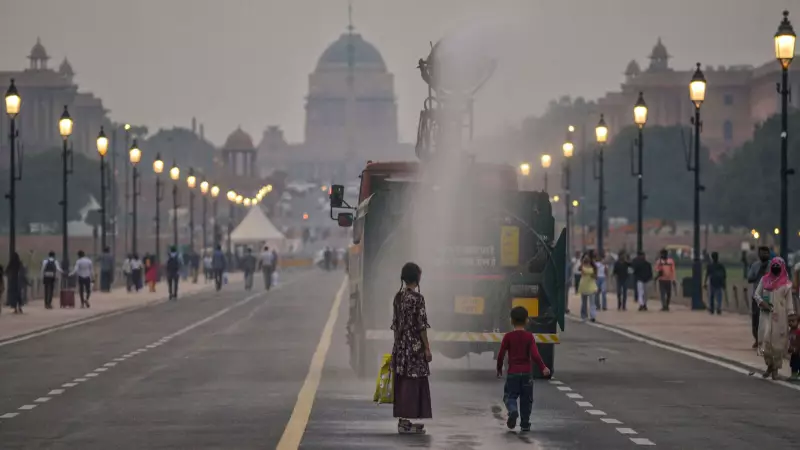
India's capital city is bracing for a significant weather shift that promises temporary relief from the choking pollution that has plagued Delhi residents. The India Meteorological Department has issued forecasts predicting rainfall across the National Capital Region, offering a brief respite from the hazardous air quality conditions.
Cloud Seeding: Delhi's Scientific Solution to Pollution
In an unprecedented move to combat the city's persistent air crisis, Delhi authorities are preparing to launch their first-ever cloud seeding trial. This innovative weather modification technique involves dispersing substances into the air that serve as cloud condensation nuclei, aiming to artificially induce rainfall that could help wash away dangerous pollutants.
The timing couldn't be more critical. Delhi's Air Quality Index has consistently registered in the 'poor' to 'severe' categories, creating serious health concerns for the city's millions of inhabitants. The impending natural rainfall, while welcome, represents only a temporary solution to a problem that requires more sustainable interventions.
What Cloud Seeding Means for Delhi's Future
Cloud seeding represents a bold technological approach to environmental management that could revolutionize how megacities tackle air pollution. If successful, this method could provide authorities with a powerful tool to deploy during peak pollution periods, particularly during the winter months when atmospheric conditions trap pollutants close to the ground.
The technique works by introducing silver iodide or other hygroscopic materials into clouds, providing surfaces for water vapor to condense around. This process accelerates the formation of rain droplets that then fall to the ground, taking suspended particulate matter with them.
Immediate Weather Relief on the Horizon
According to the latest IMD bulletin, Delhi and surrounding areas can expect:
- Light to moderate rainfall across most districts
- Temperature fluctuations as cloud cover increases
- Potential improvement in visibility conditions
- Temporary reduction in PM2.5 and PM10 concentrations
While the approaching rainfall offers immediate benefits, environmental experts emphasize that lasting solutions require addressing pollution at its source through vehicle emission controls, industrial regulations, and sustainable urban planning.
The success of Delhi's cloud seeding initiative could set a precedent for other Indian cities grappling with similar air quality challenges, potentially heralding a new era of technological intervention in environmental management.





